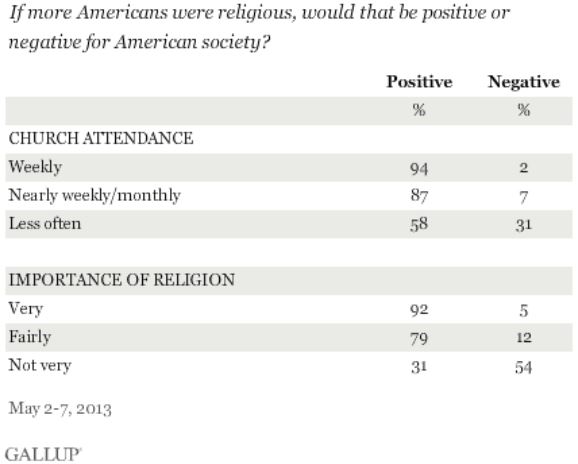There we go again. Gallup, the polling agency that predicted a Romney presidency and claim there is a “religious awakening” in the cards for us, comes up with a new poll on the issue of religion. This time, they tell us almost most in the US agrees (77%, with general agreement across religious and political groups), religion is losing influence. But that is only part of their narrative.
What is probably more interesting is the societal attitude toward religion. According to Gallup, 75% believe the society would be better off if people were more religious.
Now, the majority of Americans thinking a more religious society would be better (and this matches other data concerning negative public views on atheists and the non-religious in general) is not surprising. But 3/4 thinking that? Could well be a stretch. Particularly given Gallup’s history of cooking the data in such a way to benefit the religious right.
This is what Gallup makes of all this:
The fact that most Americans think the country would be better off if more Americans were religious shows that many of those who believe religion is losing its influence may think this is a negative state of affairs.
Well, Gallup certainly does.
One interesting side note: according to the data, even out of people who think religion is not important in their own lives, over 30% think the society would be better off if we were all more religious, as do over 50% of those not attending church weekly or monthly.
Whatever the actual numbers, this group would represent the “I don’t believe, but don’t try to take faith away from the masses, they need it” camp.


